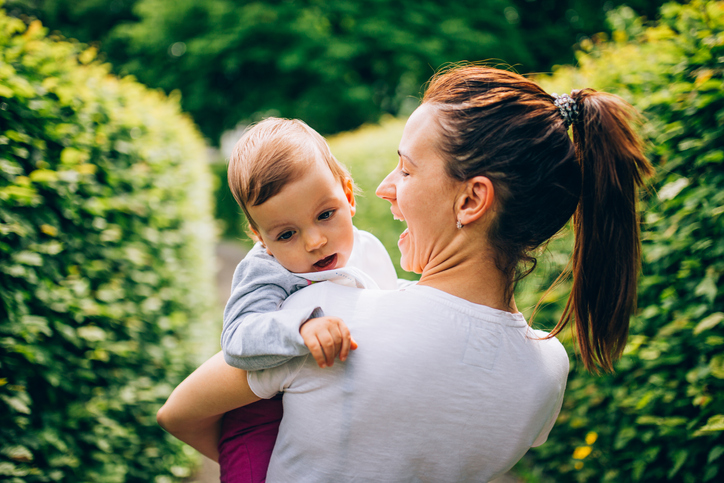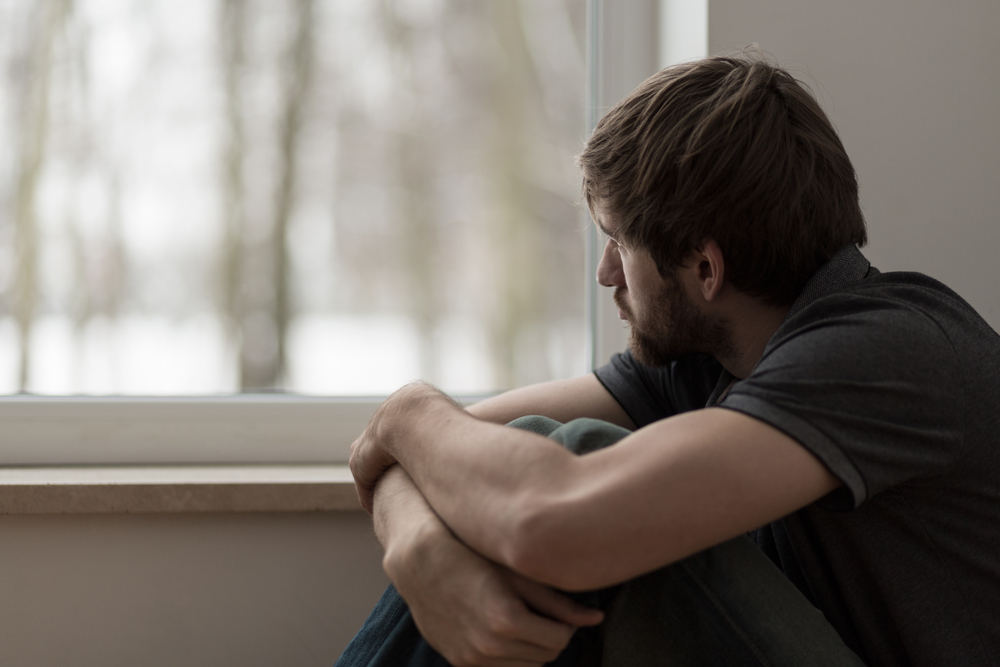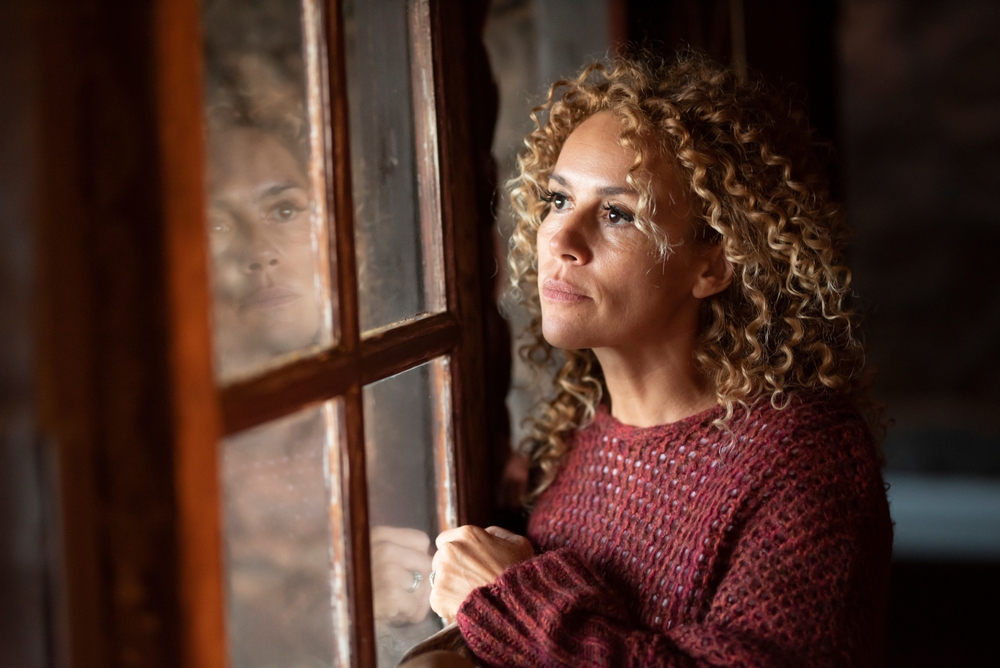As a child, one of the biggest examples of love and affection comes from your parents.

Aside from the relationship your parents have with you, the relationship that they have with each other can be a true testament of how love should be. Many children look to their parents to understand “true love” and healthy relationships, setting an example for what to look for down the road.
Unfortunately, not all relationships last forever. In fact, 33% of marriages in the US end in divorce. When you are a child of divorce, it stays with you in a ton of ways; many of those contributing to your trust in relationships and your idea of love. Here are some of the things about your parents’ split that stick with you for many years to come.
1. The lies

Many parents feel as though hiding things from their children protects them and helps them when in reality, the lies can build and truly hurt them in the long run. Hiding things and pretending that everything is okay is simply a band aid that will eventually be ripped off. Once kids find out the truth, it hurts even more to know that their parents lied to them for so long.
2. All of the yelling and fighting

Children who go through divorce oftentimes witness a lot of fighting, which also means a lot of yelling. Witnessing things like this impacts children and stays with them all the way into their adulthood. It can have a drastic effect on them, causing trauma that appears in their own relationships as adults and even normalizing it, too. Some people may think that yelling and fighting is totally normal for couples, putting up with unhealthy behaviors simply because it is what they were exposed to.
3. Watching their parents cry

Whether it’s mom or dad, watching one of your parents hurt and cry can be devastating for a child. Depending on their age, many children could feel hopeless and helpless because unsure of what to do or how to help. Some kids look for ways to fix things, while others blame themselves for the pain and struggle that goes on with their parents. No child wants to watch the two most important people hurting and in pain.
4. The big talk

Once a couple decides to get divorced, the next step is sitting down with their families and telling them the news. For kids, this can be extremely challenging. For younger kids, it’s hard to even fathom your parents not being together. When kids are older, they may try to understand more, but it doesn’t make it any easier to handle. The “big talk” that parents have with their kids is one that stays with them, sometimes forever, bringing back bad memories and horrible feelings. Many times, this is filled with tears, questions, and hopelessness.
5. Having one parent move out, or the whole family moving

The next step for many parents after a divorce is moving out. Some families end up selling their homes and downsizing into two different spaces. For kids, this means not only losing your family dynamic, but also losing your childhood home. Watching your life be turned upside down, whether it be a parent moving out or the entire family moving to new places, can be incredibly hard. Kids feel as though their whole identity is being shifted and changed, and that stays with them.
6. Having two different homes

Once your parents decide to split up and they move into two different places, kids now have two different homes. This creates a complicated and challenging environment. Many kids now have to deal with having two sets of everything — one for Mom’s house, one for Dad’s house. Some children also don’t want to go from house to house. This can cause even more issues when a child doesn’t want to leave to stay at their other parent’s house and make the divorce even harder.
7. Splitting up the holidays

Now that the family is split, it means that holidays won’t be what they used to be. With two homes and everyone living apart, holidays are never the same. Divorced parents don’t always want to be together for the holidays once they make things permanent. This means that children lose out on spending holidays with one of their parents at all times. Despite flipping and switching off, kids miss their other parent when they aren’t there.
8. The awkwardness at events

Many children have important life events and celebrations growing up — birthdays, graduations, sports games, etc. When parents are divorced, it can make going to these events a bit uncomfortable. While co-parenting is essential in a divorced family home, it can be challenging if divorces are not amicable and healthy. Some couples don’t get along, and after divorce, would rather avoid each other entirely.
9. Having to tell their friends

Children of divorce have a lot of explaining to do to their friends—especially when they are in their early teenage years. Kids tend to be nosy and ask a lot of questions, wanting to know people’s business. Many children of divorce have to explain things, like whose house they will be at or whether or not they can have a sleepover, etc. because of their complicated home situation. Having to explain to their friends why their family is different can be complicated for any child.
10. Feeling they’re to blame

Any child who goes through a divorce of their parents blames themselves from time to time. Despite it not being their fault, kids oftentimes can’t separate their feelings of guilt and shame from the truth. When children are alone and have time to think, their minds will run wild with ideas and rapid thoughts. This can lead to kids blaming themselves, sometimes because they feel that they caused stress or arguments in their parent’s lives. Although kids are never to blame for divorce, they can’t help but feel that way.
11. Losing the photos of their parents together

Wedding photos and family photos usually decorate everyone’s homes, but once parents get divorced, they definitely don’t want to sit and stare at what used to be. However, this can be sad and difficult for a child to watch and witness. Their once-decorated home with family photos becomes pretty bare and lonely when there is no trace of their other parent. They miss what was and what could have been.
12. Listening to their parents trash-talk each other

Adults, without realizing it, can be too loud too often. Kids sometimes listen to all conversations, whether or not parents realize it. When moms and dads trash-talk each other, they get angry and resentful—feeling like it’s not fair to have to hear all of the bad things. They also feel like they have to support what parents say, regardless of how they really feel.
13. Being stuck in the middle

A lot of children of divorce feel the pressure to choose sides between their mom and their dad. When their parents split, they sometimes listen in on arguments and issues. They then feel the need to pick sides, sometimes when they don’t even want to. Whether or not parents realize, that when they are too open with kids, it can lead to them feeling uncomfortable and in the middle.
14. Feeling a ton of anxiety about family dynamics

Children of divorced families tend to be very anxious when it comes to spending time with family. Whether they are with one parent, or all together, they feel anxious about insulting someone or spending too much time with one or the other. Kids easily feel anxiety when they feel they are doing the wrong thing, or not pleasing everyone in their lives. It can be very challenging to overcome.
15. Losing faith in love

Once they see their parents’ marriage fall apart, most children lose faith in love entirely. Throughout their lives, they don’t believe in forever and they lose trust in others to be there for the long-run. Children of divorced families don’t think that things really last, or that love is truly real. It can hurt them as children, but it completely tarnishes their perception of relationships and the idea of love entirely. Parents may not realize it then, but as their children grow older and have to handle a great deal of commitment issues and trauma, they may start to understand.
Enjoy this piece? Give it a like and follow PsychLove on MSN for more!



